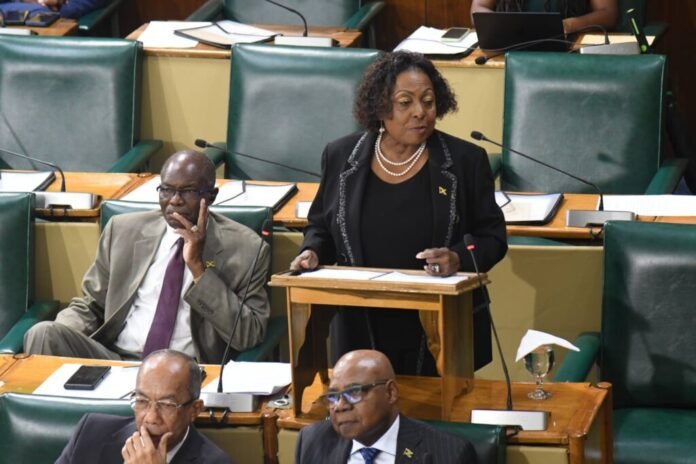Jamaica’s Bold Step Towards Reparation: Minister Olivia Grange’s Historic Announcement
On Tuesday, Minister of Culture, Gender, Entertainment and Sport, Olivia Grange, made waves in the House of Representatives during her contribution to the 2025/26 Sectoral Debate. With a firm voice and a clear vision, she announced that Jamaica would be submitting a petition to King Charles III, asking him to refer critical questions about reparations for slavery to the Privy Council.
“We are taking our demand for reparation from the United Kingdom for the enslavement of our African ancestors into another phase,” Grange declared, setting the stage for a legal journey that could reshape Jamaica’s historical narrative.
The Petition’s Core Questions
The petition is not just a symbolic gesture; it poses three significant questions that could have profound implications for Jamaica and its people:
-
Legality of Enslavement: Was the forced transport and enslavement of African people lawful? Grange argues that such actions were contrary to fundamental principles of common law, rendering any local legislation that allowed slavery void.
-
Crimes Against Humanity: Did the actions of the British government constitute ‘crimes against humanity’ under international law? If so, what responsibilities does the UK hold?
- Obligation for Remedy: Given the illegalities, is the UK obligated to provide a remedy for the suffering endured by the Jamaican people due to slavery?
Grange emphasized that this legal approach complements ongoing political negotiations, showcasing a multifaceted strategy in the quest for justice.
Historical Context and Inspiration
Drawing parallels to historical figures, Grange referenced Olaudah Equiano, a formerly enslaved African who fought for abolition in England. Equiano’s journey to freedom and his role in the abolitionist movement serve as a powerful reminder of the resilience and determination of those who came before.
“Jamaica intends such by placing these three questions before the Privy Council,” Grange explained, invoking the Judicial Committee Act of 1833, which allows the Monarch to seek advice on matters of constitutional importance.
A Collective Effort
Grange took a moment to recognize the contributions of various individuals and groups in the fight for reparations. She acknowledged the work of outgoing MP Mike Henry, attorney Frank Phipps, and the Legal Committee of the National Council on Reparation (NCR), led by King’s Counsel Bert Samuels. Their collective efforts highlight the community’s commitment to seeking justice.
“We will follow closely the submission of our petition, as it must be done before Jamaica transitions to a republic,” Grange noted, underscoring the urgency of the matter.
Public Sentiment and Future Implications
As the news spread, many Jamaicans expressed a mix of hope and skepticism. Some see this as a pivotal moment in the country’s history, while others question whether the UK will respond positively. Public opinion is divided, but the call for reparations resonates deeply within the hearts of many who feel the weight of history.
With the petition in motion, Jamaica stands at a crossroads. Will this legal approach pave the way for justice and healing, or will it be another chapter in a long struggle for recognition? As the nation watches closely, one thing is clear: the conversation around reparations is far from over, and the journey towards justice is just beginning.

